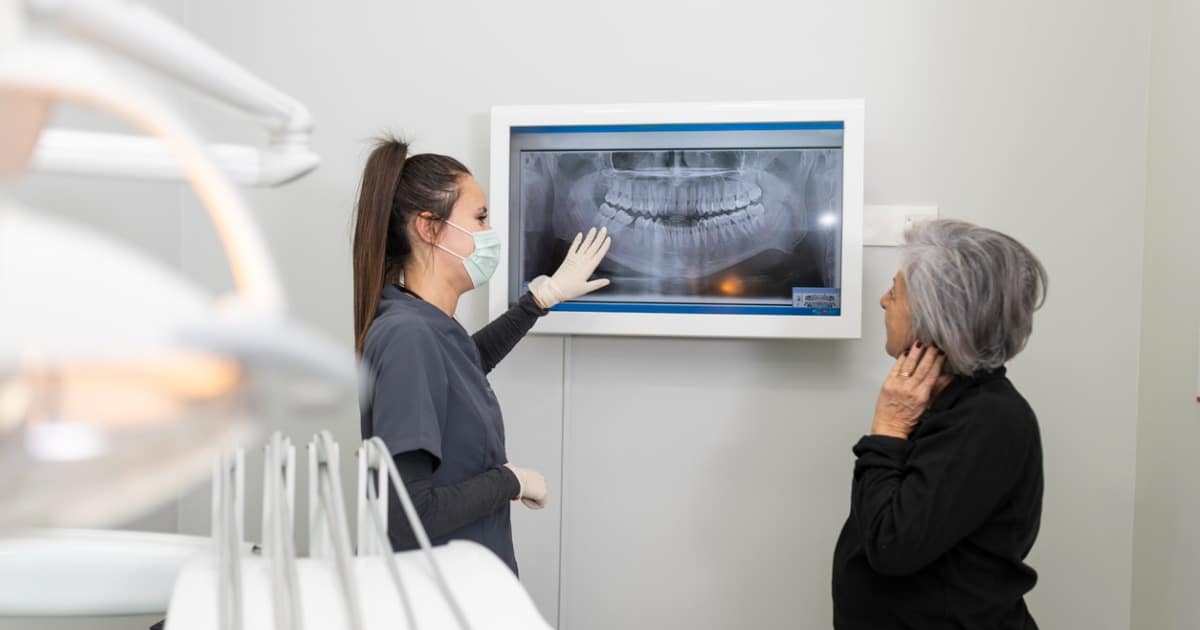In a victory for Medicare beneficiaries and providers, the Biden administration this week expanded coverage for medically necessary dental procedures in Medicare — a critical step that CDA and hundreds of leading organizations have supported through years of advocacy work to improve patient access, equity and outcomes.
The administration’s regulatory action this week is a significant step in expanding Medicare coverage of dental services. In addition to the major gains for beneficiaries beginning as early as 2023, this rule establishes an annual process that will likely lead to further expansion of Medicare covered dental services.
Coverage of dental services integrally tied to medical conditions
First, and more immediately, the Centers for Medicare & Medicaid Services will pay for dental services when those services are inextricably linked and integral to treating a beneficiary's medical condition, such as dental exams and treatment of infection prior to and following organ transplant, cardiac valve replacement or surgery and treatment for head and neck cancers.
Coverage of some services — specifically, elimination of infection preceding an organ transplant and certain cardiac procedures — will begin in 2023, while coverage of dental services linked to head and neck cancers will start in 2024.
The CDA Medicare Workgroup had been evaluating and providing feedback on CMS’s proposal since July and specifically supported the expanded coverage that is now being codified in Medicare Parts A and B.
“CDA is pleased that Medicare beneficiaries will now have additional coverage for many medically necessary and potentially life-saving dental treatments,” said CDA President Ariane Terlet, DDS. “The expanded coverage is especially important for underserved populations who face higher rates of chronic health conditions and medical challenges, as the absence of this dental coverage often prevents or delays the provision of covered medical treatments, increasing the risk of costly medical complications.”
Potential for additional covered services through review of clinical evidence
Second, the new regulation establishes an annual process to review public input and clinical evidence on other medical circumstances that may allow for payment of dental services.
The annual process is an important pathway that will now be available for providing further documented evidence that medically necessary treatment of oral health issues is essential to combatting and preventing a variety of costly chronic conditions. CMS will begin issuing additional guidance in the next few months and into 2024.
And third, the regulation codifies existing Medicare coverage for the wiring of teeth related to covered medical services, the reduction of jaw fractures, the extraction of teeth in preparation for radiation treatment of neoplastic disease, dental splints for covered treatment of certain medical conditions and oral or dental examinations relating to renal transplant surgery.
Dr. Terlet said the Biden administration’s regulatory action this week “moves us toward a more equitable system of care ensuring more seniors are able to access dental care and improve their outcomes for better health and well-being.”
CDA’s recommendations on coding and fees reflected in regulation
The CDA workgroup had also critically focused over recent months on how to make an expansion of dental services feasible and functional for dentists and their patients. Most notably, CDA proposed in its comments to CMS a specific and detailed approach to the fee structure that would keep dentists out of the physician fee rate setting process and the budget-neutral requirements that have held down Medicare physician fees over the last 20 years. The workgroup also asked that dentists be paid an appropriate rate based upon fair market billing rather than benchmarking at Medicaid or other public program rates.
“Our evaluation of the payment structure referenced in the regulation indicates that CMS is on the on right path regarding the payment structure and that CMS heard CDA’s input to not subject dental services to the physician fee schedule budget neutrality requirements,” said Terlet. “There will need to be additional guidance provided by CMS to clarify the rate setting process, and CDA will continue to advocate with CMS to help ensure the implementation is workable and feasible for Medicare dentists and their patients.”
CDA will continue working with the Biden administration to ensure that the expanded coverage for patients and providers is effectively implemented and that the payments are feasible and functional and keep members apprised of progress and developments in the coming months.

